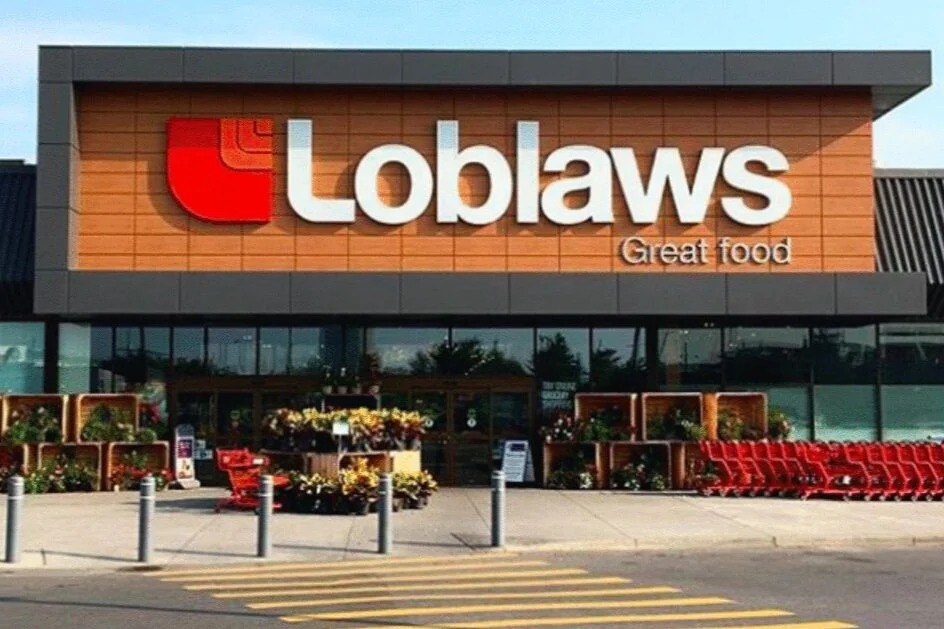Canadian Grocery Retailers Must Deliver on Delivery or Lose to Competitors: Expert
/PHOTO: LOBLAWS
By Sylvain Charlebois Director, Agri-Food Analytics Lab, Professor in Food Distribution and Policy, Dalhousie University
Walmart just announced it will now offer a one-day delivery service to its customers in the U.S. It’s a move that will help them compete with Amazon, and Walmart will begin offering its service in Phoenix, Las Vegas, and southern California soon after. Walmart intends to cover 75% of the entire country this year. Customers need to purchase at least $35 U.S. worth of products and this service, of course, includes food items. Most retailers across North America are doubling their e-commerce strategies, trying to catch up with the modern consumer’s pursuit for higher convenience. And Canadian grocers are not staying idle.
Food deliveries are not new in Canada. They’ve been happening for decades. What is new, though, is the scalability of operations, which banks on speed and reliability. Online food delivery programs are all about time and precision. Amazon set the benchmark and everyone else is following. Sobeys recently announced its “Voilà” service a few days ago, a highly appropriate, bilingual spin for a company desperately trying to execute an online strategy which requires some intense centralization. In order to do so, it is investing close to $100 million on a new distribution centre north of Toronto that is the size of 15 hockey rinks. Sobeys is hoping to capitalize on its partnership with U.K.-based Ocado, known for its knowledge in AI and cybernetics.
instacart shopper selecting groceries for a client at walmart photo: instacart via walmart
PHOTO: SOBEYS
Loblaws, on the other hand, has been working internally on a new online model while expressing its content on its “Click and Collect” service, offered now in over 700 stores across the country. That said, Loblaws and Instacart already do offer grocery delivery to millions of Canadian homes. Some movement has been reported at Metro as well. Costco is in the middle of its southern Ontario pilot, which could prove interesting since its sales now include over $14 billion worth of food in Canada each year. Having someone else to carry all those bulk food items from the store to your home can be a very appealing proposition for an ageing population, or even for people living on second or third floors of buildings. Blazingly convenient.
Canada’s online shopping in food retail represents roughly 1.8% of the $120 billion market – a drop really. But some analysts suggest Canada could catch up to the U.S. by 2025, and 7% of all food sold in the U.S. at retail is purchased online. It still may not look like much, but 7% would be almost $9 billion worth of food. Minus the non-food sales, that sum is almost equal to the food sold by one of the country’s top grocers, Metro. With laser-thin margins, generating more online revenues will be key. Grocers have realized for a while now that embedded into a successful delivery model is the illusion of a free service to consumers. Selling food online and increasing profits while the customers remain convinced they’re getting deals this is a feat that can only be achieved through algorithms and analytics, an art Amazon has mastered for decades.
photo: hellofresh via facebook
As the industry attempts to make its offerings more convenient, culprits will need to keep in mind one important thing: convenience will always trump two fundamental things in our lives, our environment and health. Most often, the food industry will go after the mighty dollar without thinking twice about how a newly deployed strategy can impact the environment and our health. Think about it. Fast food with little or no nutritional value, ready-to-eat products and meal kits with excessive packaging - all have provided more convenience while undermining our ability as consumers to serve the planet or safeguard our wellness as individuals. It’s been like that for decades, but things are slowly changing due to an ever-empowered, social network-savvy marketplace.
The sudden, collective backlash against plastics was violent for the industry and came out of nowhere, but it had to happen. As a society, we realize how our way of life is no longer sustainable, in many ways. It is more than reasonable for consumers to ask the industry to comply with societal expectations as soon as possible.
Convenience is the main box being ticked when looking at home delivery service, but it can’t stop there. Grocers will need to think about ways to go after our business and our grocery money while keeping us and our planet healthy. More choice for consumers may be desirable, especially when food is involved, but it can’t come at a huge cost for us all.
Dr. Sylvain Charlebois is Dean of the Faculty of Management at Dalhousie University in Halifax. Also at Dalhousie, he is Professor in food distribution and policy in the Faculty of Agriculture. His current research interest lies in the broad area of food distribution, security and safety, and has published four books and many peer-reviewed journal articles in several publications. His research has been featured in a number of newspapers, including The Economist, the New York Times, the Boston Globe, the Wall Street Journal, Foreign Affairs, the Globe & Mail, the National Post and the Toronto Star. Follow him on twitter @scharleb.




















![Retail-insider-NRIG-banner-300-x-300-V01-3[2].jpg](https://images.squarespace-cdn.com/content/v1/529fc0c0e4b088b079c3fb6d/1593476525034-QRWBY8JUPUYFUKJD2X9Z/Retail-insider-NRIG-banner-300-x-300-V01-3%5B2%5D.jpg)
![Retail-insider-NRIG-banner-300-x-300-V01-2[2].jpg](https://images.squarespace-cdn.com/content/v1/529fc0c0e4b088b079c3fb6d/1593476491497-W6OZKVGCJATXESC9EZ0O/Retail-insider-NRIG-banner-300-x-300-V01-2%5B2%5D.jpg)
![Retail-insider-NRIG-banner-300-x-300-V01-4[2].jpg](https://images.squarespace-cdn.com/content/v1/529fc0c0e4b088b079c3fb6d/1593476508900-TJG5SNQ294YNOCK6X8OW/Retail-insider-NRIG-banner-300-x-300-V01-4%5B2%5D.jpg)